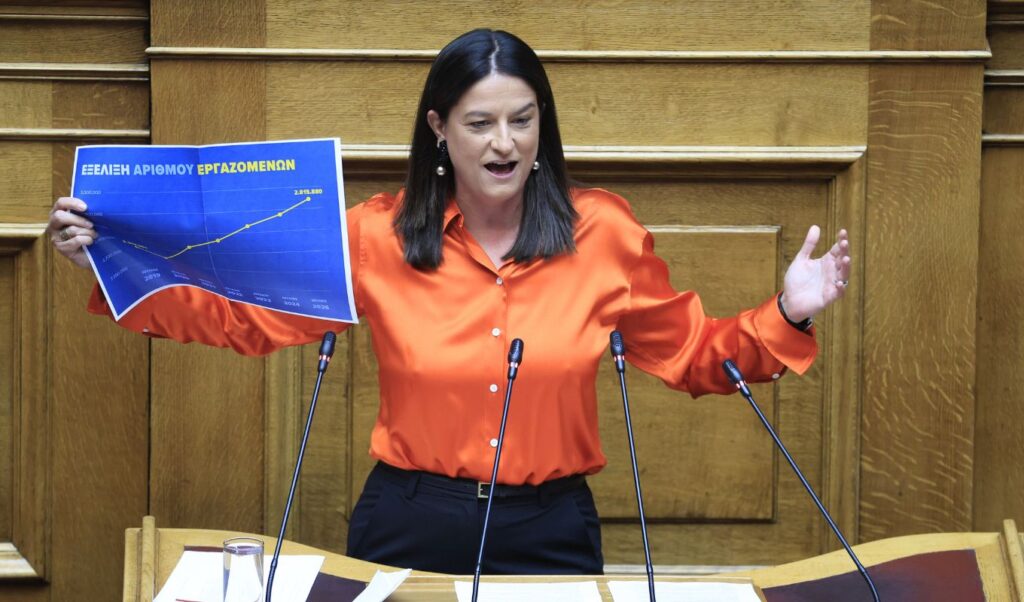Labor Minister Niki Kerameos discussed changes in the new labor bill, the 13-hour work provision, four-day work week, and wage increases during her interview on ERTnews. Additionally, Kerameos analyzed today’s employment landscape compared to that of 2019. She emphasized that some provisions of the bill were voted with over 220 MPs, while half the bill was passed by more than 3/5 of the Greek Parliament. “How catastrophic can something be when it’s voted with such a large majority?” she noted, while adding that “SYRIZA, despite participating in all discussions for 40 hours across 6 sessions, suddenly chose to leave the voting and not vote at all,” attributing the walkout to the roll-call vote on individual articles requested by New Democracy.
Read: Niki Kerameos: Opposition’s stance hypocritical – Over 180 MPs voted for labor reform
Among other points, Kerameos emphasized that “the worker’s position is significantly strengthened,” noting that “unemployment has decreased to 8%, giving workers greater bargaining power,” while underlining that “The 8-hour workday is not abolished, the five-day work week is not abolished.” Referring to employee compensation, she noted that “the average full-time salary stands at €1,478,” while only “with the implementation of the digital work card, workers’ earnings increased by 48%.”
Niki Kerameos on four-day work week
The Labor Minister emphasized that the bill strengthens workers’ rights to request four-day work schedules of 10 hours per day. As she stated: “Until now this was only allowed for 6 months per year. So this right to request four-day work is extended for the entire year.” According to the minister, the worker’s position is significantly strengthened, given that unemployment has decreased to 8%, providing workers with greater bargaining power.
13-hour work regulation
Regarding the so-called 13-hour provision, Kerameos clarified: “The 8-hour workday is not abolished, the five-day work week is not abolished. This regulation is an exceptional measure that can only be applied for up to 37 days per year, and only if the worker agrees.” Additionally, the regulation offers higher compensation compared to what previously applied to workers employed by two employers, without affecting established working time limits.
Wage increases
The minister highlighted increases in minimum wage, from €650 to €880, and announced new increases that will take effect next year. As she stated: “Greece ranks 11th among the 22 European Union countries that have a legally mandated minimum wage. Our goal is to increase wages and pensions while simultaneously reducing taxes and contributions.” She also mentioned the successful implementation of the digital work card, which increases workers’ earnings and improves labor law enforcement.
The minister also referred to initiatives addressing job vacancies: “Over 49,000 matches between supply and demand have already been made through electronic platforms. We invest in training and retraining human resources, while offering specializations in high demand, such as tourism and hospitality.”




